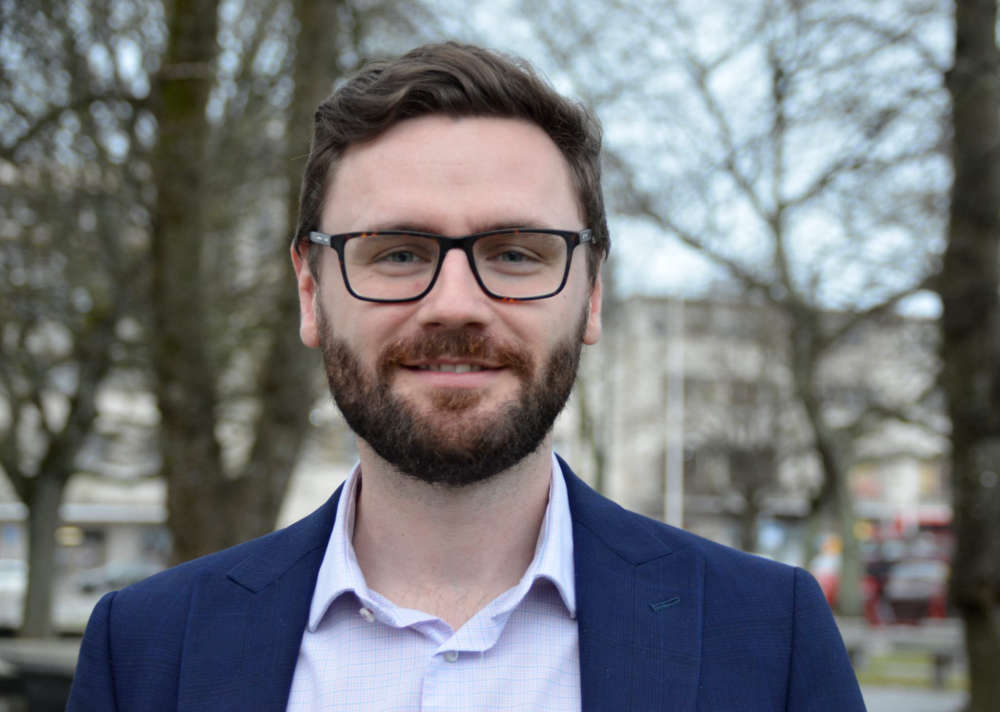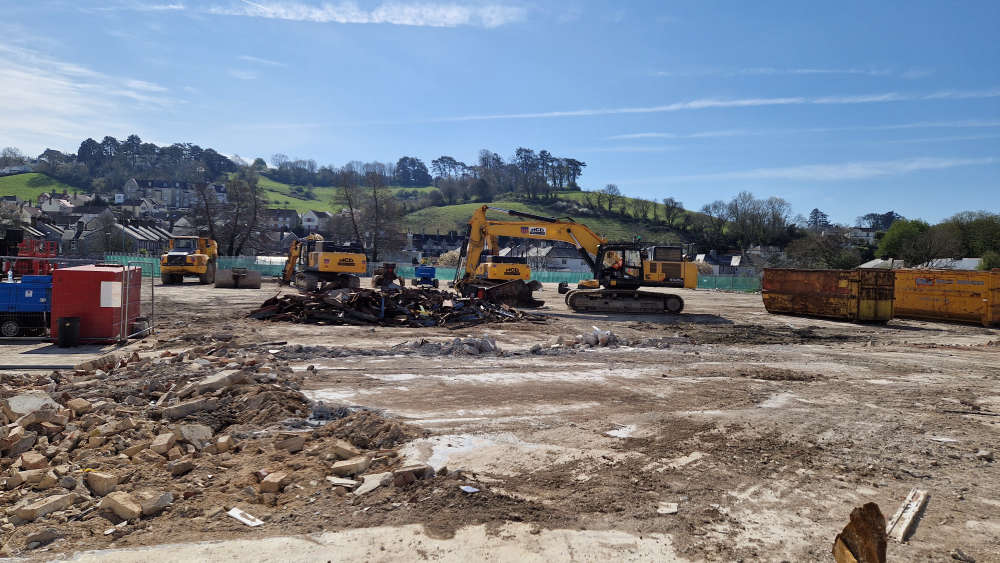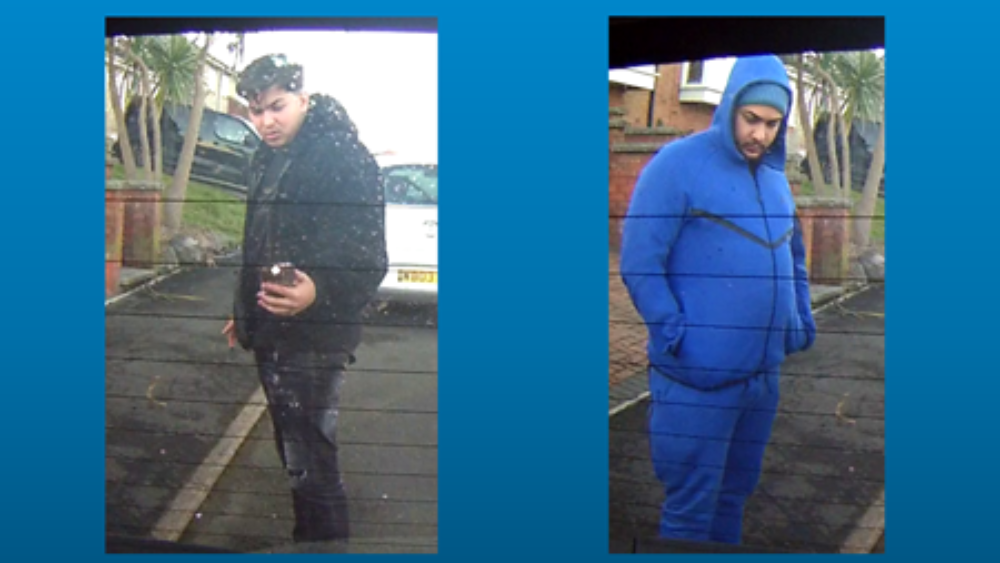
Plymouth resident to stand for PCC
A Plymouth born-and-bred former diplomat is hoping his resilience and experience of working in some of the most challenging areas of the world will make him a good fit for the role of Devon and Cornwall police and crime commissioner.
Daniel Steel is one of three candidates standing for election on Thursday 2 May. He is the Labour and Co-operative Party representative.
The others are Conservative Alison Hernandez, who has been police and crime commissioner (PCC) for the last eight years, and Tiverton businessman Steve Lodge, for the Liberal Democrats.
The job of the PCC is to hold the police force to account and to scrutinise their performance. It comes with a salary of more than £88,000 and elections take place every four years.
Mr Steel, 31, says he has public service running through his veins. His father was in the Royal Navy and he has always wanted “to do his bit.”
“My values come from my dad, it has what has motivated me my whole life. I want to put back more than I take out.”
He has served in countries such as Afghanistan, where he says his resilience and leadership were forged. He also dealt with challenging issues around refugee displacement, human trafficking and modern slavery whilst working at the Foreign Commonwealth and Development Office.
“I spent a lot of my career so far working in difficult and dangerous places,” he said. “It allowed me to see what it looks like when the rule of law breaks down. I fundamentally believe that the rule of law is the bedrock of our society and democracy.
“When you look at the alternatives of violence and chaos you see in lots of other places, we are really lucky that in the UK we have strong government systems and governance in our country.”
Mr Steel, who has had to give up his job as a civil servant because he is standing for office, hopes that Labour will form the government following the next general election but he says in the meantime the police and crime commissioner role is a chance to implement the party’s mission.
“One of Labour’s key aims is to take back the streets, with 13,000 more officers and police community support officers (PCSOs). I was shocked that in Devon, Cornwall and the Isles of Scilly we only have 177 PCSOs. That’s one per 10,000 residents. It’s why we don’t have the community policing we expect and deserve as the public.”
Devon and Cornwall had almost double the number of PCSOs (346) in March 2015, a year before Ms Hernandez took over as commissioner. Many subsequently became police officers.
“If I am elected, my number one priority on day one is to re-establish community policing. Too many police officers unfortunately are having to work behind desks because the force does not have the right mix of staff.
“Alongside the acting chief constable and the senior team, I would be looking how we can increase police staff to free up officers so they can be working on the streets, not on spreadsheets.”
Mr Steel, who lives in Plymouth, said members of the public he had talked to linked problems of anti-social behaviour and burglaries directly with a lack of visible police presence.
And a business organisation in St Austell was paying a private security firm in the town centre to keep crime down, he said.
“It’s not the fault of police. It’s a result of all political decision making by the Conservative government and police and crime commissioners. Policing was cut to the bone and the force has lost years of valuable experience from those officers who went during the cuts.”
Mr Steel has also pledged to tackle violence against women and girls, prevent youth crime and reduce reoffending, boost crime prevention and victim support, and back a crackdown on illegal sewage dumping.
A few years ago, he was the victim of a knife crime and said the traumatic experience had stayed with him. He says it has given him the ability to empathise with victims of serious crime.
“I see the role as being a representative for victims, the accused and members of the public to try and bring a public prospective into the police.”
He said he had made a career out of bringing people together.
And he added that his work as a diplomat was similar to being a politician: “I have represented the UK and spoken on its behalf with ministers and other diplomats around the world to make sure I was delivering for the UK’s people.
“The PCC is a challenging role but an important one. It which covers an enormous region. We are diverse in terms of population, rural, urban, different politics and I will be acting in a fair and even handed way and do my best to serve the residents across the region, however they vote.
“I can reassure the public that I will be making the tough calls and asking the tough questions. The cost of policing is becoming more and more of a burden on the taxpayer, for me it’s about how we use those resources efficiently to make sure they are working.”
 SWW to build huge new Churston solar farm
SWW to build huge new Churston solar farm
 MP highlights Devon's dentistry 'crisis'
MP highlights Devon's dentistry 'crisis'
 Work on ‘once-in-a-generation’ Newton Abbot project back on track
Work on ‘once-in-a-generation’ Newton Abbot project back on track
 Complaints made after animal activity licence backlog
Complaints made after animal activity licence backlog
 City draw at home
City draw at home
 Cars damaged in bid to buy cheaper
Cars damaged in bid to buy cheaper
